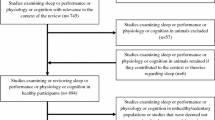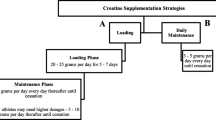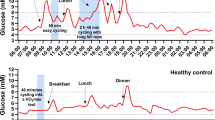Abstract
In this investigation we evaluated the effect of a 5-week training program at 1860 m on serum creatine kinase (CK) activity and serum cortisol concentration in national-caliber triathletes for the purpose of monitoring the response to training in a hypobaric hypoxic environment. Subjects included 16 junior-level female (n = 8) and male (n = 8) triathletes who were training for the International Triathlon Union (ITU) World Championships. After an initial acclimatization period, training intensity and/or volume were increased progressively during the 5-week altitude training camp. Resting venous blood samples were drawn at 0700 hours following a 12-h overnight fast and were analyzed for serum CK activity and serum cortisol concentration. Subjects were evaluated before [7–10 days pre-altitude (SL 1)] and after [7–10 days post-altitude (SL 2)] the 5-week training camp at 1860 m. At altitude, subjects were evaluated within 24–36 h after arrival (ALT 1), 7 days after arrival (ALT 2), 18 days after arrival (ALT 3), and 24–36 h prior to leaving the altitude training camp (ALT 4). A repeated-measures analysis of variance was used to evaluate differences over time from SL 1 to SL 2. Compared to SL 1, serum CK activity increased approximately threefold (P < 0.05) within the initial 24–36 h at altitude (ALT 1), and increased by an additional 70% (P < 0.05) after the 1st week of altitude training (ALT 2). Serum CK activity remained significantly elevated over the duration of the experimental period compared to pre-altitude baseline levels. Serum cortisol concentration was increased (P < 0.05) at the end of the 5-week altitude training period (ALT 4) relative to SL 1, ALT 1 and ALT 3. These data suggest that: (1) the initial increase in serum CK activity observed in the first 24–36 h at altitude was due primarily to acute altitude exposure and was independent of increased training intensity and/or training volume, (2) the subsequent increases in serum CK activity observed over the duration of the 5-week altitude camp were probably due to the combined effects of altitude exposure and increased training load, and (3) the increase in serum cortisol concentration observed at the end of the altitude training camp reflects the additive effect of 5 weeks of altitude exposure in combination with a progressively increased training intensity and/or volume.
Similar content being viewed by others
Author information
Authors and Affiliations
Additional information
Accepted: 5 June 1999
Rights and permissions
About this article
Cite this article
Wilber, R., Drake, S., Hesson, J. et al. Effect of altitude training on serum creatine kinase activity and serum cortisol concentration in triathletes. Eur J Appl Physiol 81, 140–147 (2000). https://doi.org/10.1007/PL00013787
Issue Date:
DOI: https://doi.org/10.1007/PL00013787




